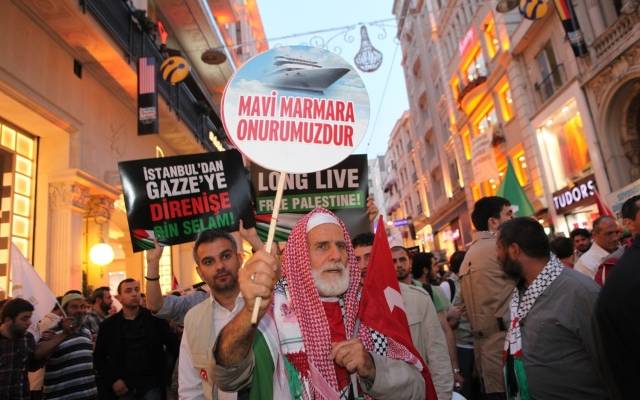IDI Expert Issues Legal Opinion on the Decision to Reopen the Investigation of the Mavi Marmara
Prof. Amichai Cohen: "This is a controversial decision that proves once again that Israel is being targeted and that we must strengthen its defense mechanisms."
Prof. Amichai Cohen responds to the decision by the judges of International Criminal Court in The Hague to reopen the investigation into the events of the Mavi Marmara.

Image courtesy of Shutterstock
In response to the decision by the judges of International Criminal Court in The Hague to reopen the investigation into the events of the Mavi Marmara, Prof. Amichai Cohen of the Israel Democracy Institute issued a legal opinion that raises questions regarding the rationale of the decision and rings warning bells regarding Israeli policy regarding investigations.
In the brief, Prof. Cohen, a Research Fellow in IDI's Center for National Security and Democracy and head of the Faculty of Law at Ono Academic College, explains the Court's decision. According to Cohen, the Mavi Marmara incident was not broad enough to meet the criteria for defining a "war crime." However, he explains: "the significance of the investigation—or even worse, of prosecution by the International Criminal Court—is that there will be a real danger that it will be necessary to restrict international travel of soldiers who took part in the fighting in Gaza, senior IDF officials, and political figures who were involve in decision-making during the time of the Operation, to member countries of the International Criminal Court for fear of arrest."
Cohen also argues that the ICC's decision proves again that sooner or later, proceedings will actually be initiated against Israelis in the International Criminal Court in The Hague. For this reason, the State of Israel must strengthen and reinforce its internal mechanisms for investigating alleged violations of international humanitarian law. In this spirit, Cohen concludes: "The most powerful barrier against international legal intervention is the 'principle of complementarity.' According to this principle, when a state conducts an effective internal investigation of allegations of violations of international law, the ICC will not exercise its authority regarding that case."
"In the current situation," Cohen continues, "having learned the lessons of the Marmara affair, which is still pursuing Israel some five years after the event, the most effective policy measure that Israel can adopt would be: to continue developing mechanisms for independent investigation in accordance with the recommendations of the Turkel Commission, to strengthen the independence of the Military Advocate General, and to create mechanisms for enhanced oversight of Israel's military and political leadership. This process is already underway, but it must be intensified, since if Israel is able to prove that it is conducting an internal investigation that meets the standards of international law, that will be the strongest argument to prevent the International Criminal Court from launching a criminal investigation. For this reason, my recommendation to the Prime Minister, the Defense Minister, the Justice Minister, and other relevant parties, to accelerate the adoption and implementation of the recommendations of the Turkel Commission immediately and fully."
Click here for a full analysis of the issues involved (Hebrew).
